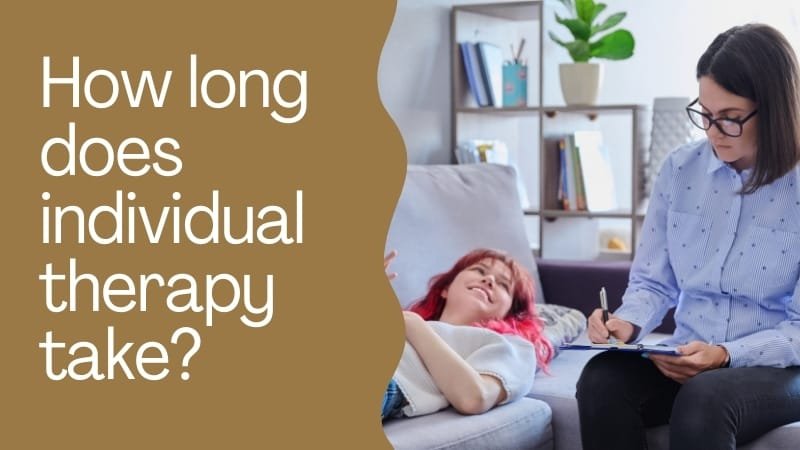Most individual therapy programs last between 8 and 20 sessions, but the exact duration depends on your specific goals, the complexity of the issue, and your progress in therapy.
Types of Therapy Duration
- Short-Term Therapy (8–12 sessions):
Focuses on specific goals like managing stress, coping with a breakup, or addressing mild anxiety or depression. Often uses structured approaches like CBT (Cognitive Behavioral Therapy). - Medium-Term Therapy (3–6 months):
Ideal for people facing significant life transitions, moderate mental health challenges, or relational issues. This time frame allows for deeper reflection, skill-building, and lasting change. - Long-Term Therapy (6+ months to years):
Suitable for addressing trauma, complex emotional patterns, personality-related concerns, or chronic conditions. Long-term therapy offers a space for healing and self-discovery at a deeper level.
Factors That Influence Therapy Duration
- Goals – Are you seeking symptom relief or deeper emotional healing?
- Therapeutic Approach – Modalities like CBT are often shorter, while psychodynamic or EMDR therapy may take longer.
- Consistency – Regular sessions (weekly or bi-weekly) often lead to quicker results.
- Client Readiness – Openness, motivation, and personal circumstances all affect progress.
What to Expect
Your therapist will typically discuss your goals in the first few sessions and may offer a customized treatment plan. Progress is regularly reviewed, and adjustments are made to ensure therapy remains aligned with your needs.
Quick Summary:
Individual therapy doesn’t follow a fixed timeline. It’s flexible and tailored to you. Whether short-term or long-term, therapy is most effective when you feel safe, supported, and empowered to grow at your own pace.


